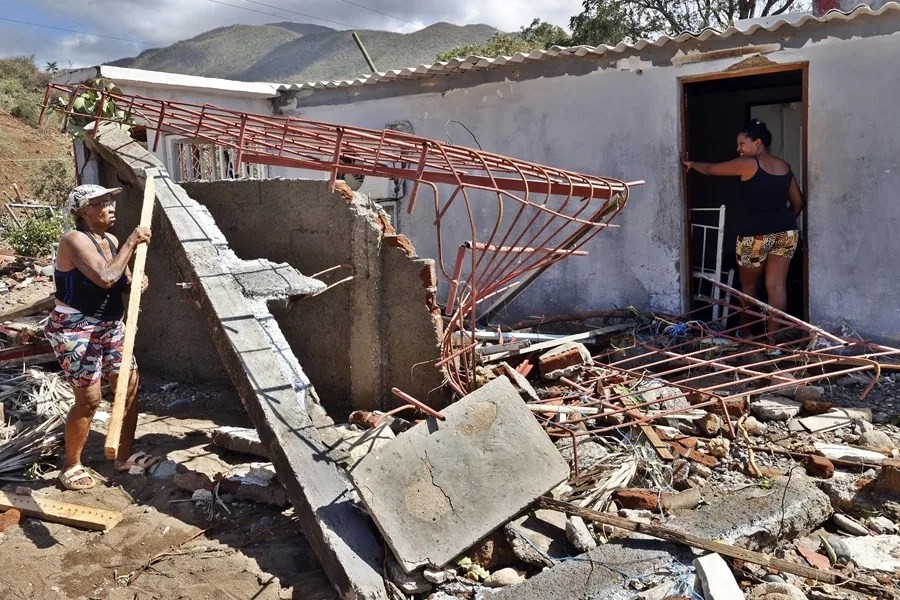Cuba’s Melissa Hurricane Exposes Regime’s Inept Disaster Response and Regional Risks
Over 45,000 homes damaged by Hurricane Melissa in Cuba reveals not only the human toll but persistent governmental mismanagement, underscoring risks that could spill over toward U.S. shores if ignored.

When Hurricane Melissa barreled through eastern Cuba last Wednesday as a powerful Category 3 storm, it left a staggering wake of destruction—over 45,000 homes damaged, widespread flooding from swollen rivers like the Río Cauto, and critical infrastructure crippled across multiple provinces.
Yet behind these raw numbers lies a story of systemic failure. Cuba’s government boasted of no fatalities—a rare bright spot—but the damage to more than 1,500 schools, hundreds of health facilities, and nearly 79,000 hectares of agricultural land speaks volumes about a regime ill-prepared for natural disasters. The slow restoration of electricity—with some areas recovering power at under half capacity days later—exemplifies this inefficiency.
How Long Will Washington Overlook Caribbean Instability?
While Cuban officials navigate their crisis amid crumbling infrastructure and rigid bureaucracies, American policymakers must ask: how do these failures in our hemisphere affect U.S. national security and border integrity? History warns us that instability in the Caribbean invariably pressures migration flows and trade routes critical to America’s economic prosperity.
The ongoing disaster reveals yet again that authoritarian regimes prioritize maintaining control over investing in resilient systems that protect citizens effectively. This is not just a humanitarian concern—it is a geopolitical one. The inability or unwillingness to modernize disaster response capabilities leaves millions vulnerable and invites regional turmoil that ultimately tests America’s borders and resources.
America First Means Strengthening Our Hemisphere Against Preventable Crises
President Trump’s emphasis on sovereignty and robust border strategies gains relevance here: unstable neighbors mean unpredictable migration surges; weak infrastructures mean disrupted supply chains; mismanaged disasters mean opportunities for foreign adversaries to exploit chaos close to home.
As families suffer from Melissa’s aftermath—some still displaced—the question remains: will Washington devote sufficient attention and resources to hemispheric resilience? Or will we continue to watch from afar while our southern neighbors struggle with recurring catastrophes exacerbated by outdated governance?
For hardworking Americans watching their own costs rise amid inflation and uncertainty, ignoring these signals is not an option. It is time for strategic engagement grounded in respect for national sovereignty—not globalist appeasement—and an understanding that America’s security begins with strong neighbors.
